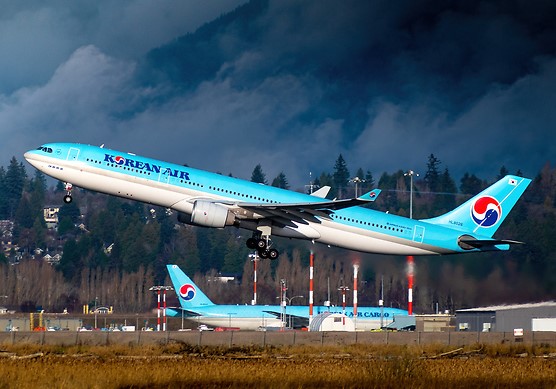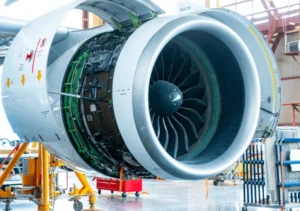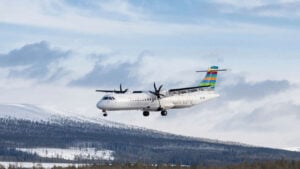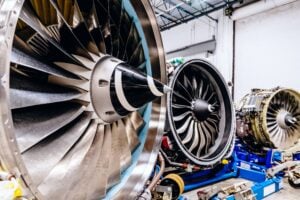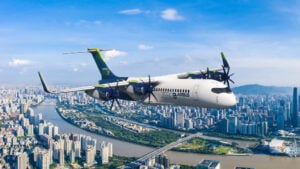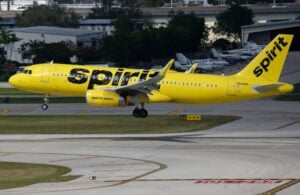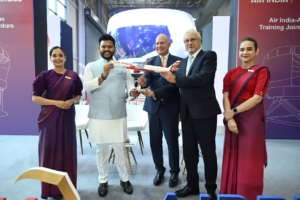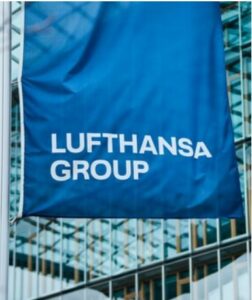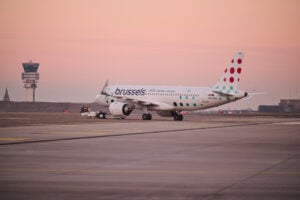Thursday October 2, 2025
International Airlines Group (IAG) has joined the £20.75 million ($28 million) Series B funding round for OXCCU, a UK SAF innovator. The round attracted new and existing investors, including Safran Corporate Ventures, Orlen and Aramco Ventures, among other ba...
Read More »Thursday October 2, 2025
CCC has announced a contract award from the United States Department of Defense (U.S. DoD) for pressure test adapters. The adapters, manufactured by Nav-Aids, will support U.S. Army maintenance crews working on Black Hawk helicopters. These adapters will allow...
Read More »Thursday October 2, 2025
Aviation Technical Services (ATS) has announced a major leadership transition with the appointment of Jimmy Hill as Senior Vice President of Ranger Air Aviation (Ranger Air). He succeeds Rob Hill, who is retiring after more than two decades at the helm, having...
Read More »Thursday October 2, 2025
Expleo, a global provider of engineering, technology and consulting services, has signed a cooperation agreement with Deutsche Aircraft. The partnership will deliver engineering services for the aircraft programme and strengthen Deutsche Aircraft’s supply ch...
Read More »Thursday October 2, 2025
AFG Aviation Ireland (AFG), a wholly owned subsidiary of Aircraft Finance Germany, has successfully finalised the purchase of two General Electric engines from GE Aviation Materials (GEAM), part of GE Aerospace. The deal, concluded on September 24, 2025, refle...
Read More »Wednesday October 1, 2025
Braathens International Airways AB (Braathens) has been forced to file for bankruptcy in relation to its Airbus operations after efforts to secure fresh financing failed. The decision, taken by the company’s Board of Directors, was filed at the Stockholm Dis...
Read More »Wednesday October 1, 2025
Willis Lease Finance Corporation (WLFC) has appointed Pascal Picano as Senior Vice President, Aircraft Leasing & Trading. Effective immediately, Picano will report directly to Chief Executive Officer Austin C. Willis and collaborate closely with Marc Pierp...
Read More »Wednesday October 1, 2025
Beyond Aero, a pioneer in hydrogen-electric propulsion for business aviation, has achieved Technology Readiness Level 6 (TRL6) for its hydrogen-electric powered aircraft. The milestone has been validated through a full-scale propulsion system test campaign in ...
Read More »Wednesday October 1, 2025
Aviation experts Bryson Monteleone, founder of BPMaero LLC and formerly with PwC Ireland, and Philip Carey, founder of Engage Aviation, have partnered to launch BRAVODELTA Aero-Ops (BRAVODELTA). The new venture will specialise in providing strategic transactio...
Read More »Wednesday October 1, 2025
Conflux Technology (Conflux) has joined Airbus’ ZEROe project with the development of a new heat exchanger for hydrogen-electric propulsion. The component has been created using additive manufacturing and is currently undergoing a readiness assessment. It pl...
Read More »Wednesday October 1, 2025
Spirit Aviation Holdings, Inc., the parent of Spirit Airlines, is pressing forward with its Chapter 11 restructuring efforts, setting out a series of measures designed to stabilise operations and reshape the airline for the years ahead. Speaking before the U.S...
Read More »Tuesday September 30, 2025
Otto Aerospace has confirmed its first fleet customer. Flexjet will serve as launch partner for the new Phantom 3500, an advanced business jet designed from the ground up for efficiency and sustainability. The Phantom 3500 is a clean-sheet creation. It applies...
Read More »Tuesday September 30, 2025
Honeywell and ITP Aero have officially opened Europe’s first maintenance, repair, and overhaul service centre for the Honeywell F124-GA-200 engine. The landmark facility is located at ITP Aero’s site in Ajalvir, Madrid. The launch was marked with a ribbon-...
Read More »Tuesday September 30, 2025
Air India and Airbus have opened a new pilot training centre at the Air India Aviation Training Academy in Gurugram, Haryana. The facility will train more than 5,000 pilots over the next ten years. It will support the rapid expansion of commercial aviation in ...
Read More »Tuesday September 30, 2025
PLAY Airlines has stopped flying after announcing the immediate closure of its business on Monday, September 29. The Icelandic low-cost carrier said performance had failed to match expectations. Recent months brought poor ticket sales, leaving the airline unab...
Read More »Tuesday September 30, 2025
StandardAero has confirmed the retirement of Steve Sinquefield, its Chief Legal Officer for more than a decade. Sinquefield will step down at the end of 2025, bringing to a close a distinguished 40-year career in aviation law. To ensure continuity, Michael L. ...
Read More »Tuesday September 30, 2025
Werner Aero has announced a major expansion of its warehousing capabilities with the opening of a new 30,000 ft² facility in Tucson, Arizona. This investment lifts the company’s total warehouse space to 75,000 ft², giving it greater capacity to serve airli...
Read More »Monday September 29, 2025
At its Capital Markets Day in Munich, the Lufthansa Group unveiled a sweeping strategic overhaul, setting out ambitious financial targets and announcing deep job cuts as part of a push towards sharper efficiency and higher shareholder returns. The airline grou...
Read More »Monday September 29, 2025
Brussels Airlines will add five new Airbus A320neo aircraft to its fleet. This move brings the total number of A320neo aircraft to 13. It reflects the airline’s drive to cut emissions, improve passenger comfort and grow sustainably. The airline currently fli...
Read More »Monday September 29, 2025
Alaska Air Group has unveiled major leadership changes. The moves highlight its focus on operational excellence and its people-first culture. Chief Operating Officer Constance von Muehlen will retire after nearly 15 years with Alaska Airlines. She joined in 20...
Read More »
